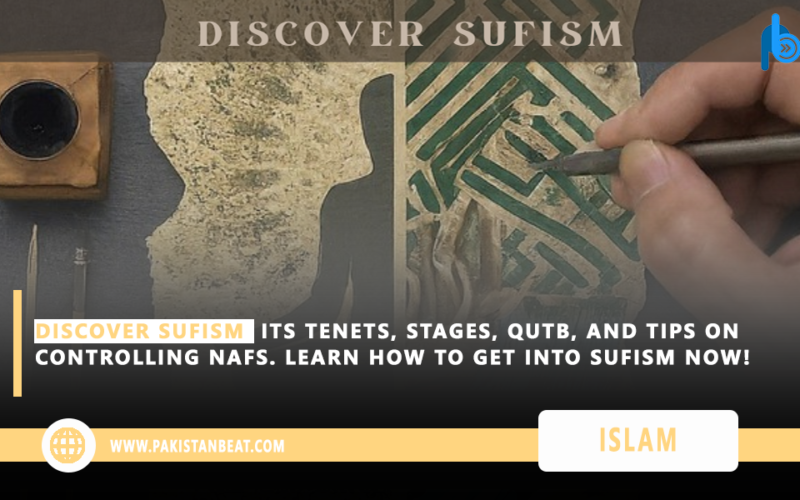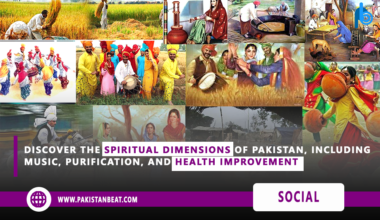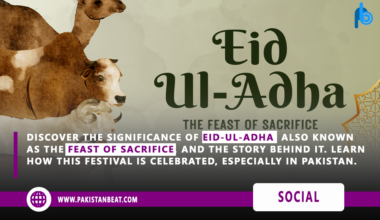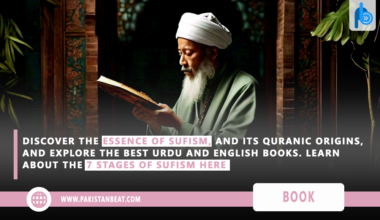Excerpt Introduction: Plunge into the exuberant roots of Islamic values and traditions with a remarkable focus on Sufism in Pakistan. Grasp its basic tenets, doctrines, and realistic ways to control Spirit (Nafs). Scrutinise the 4 stages of Sufism and the meaning of the Qutb in this esoteric trip.
Islamic values and traditions are extremely rooted in the educational framework of Pakistan. The country, being an Islamic democracy, pulls greatly from the precepts of Islam, which impact all angles of life. Amongst the diverse manifestations of Islam in Pakistan, Sufism catches the eye due to its attention on inward spiritualism and association with God. This weblog will research how to get into Sufism, the basic tenets and doctrines of Sufism, how to control Spirit (Nafs) in Sufism, the role of Qutb in Sufism, and the 4 stages of Sufism.
How to get into Sufism?
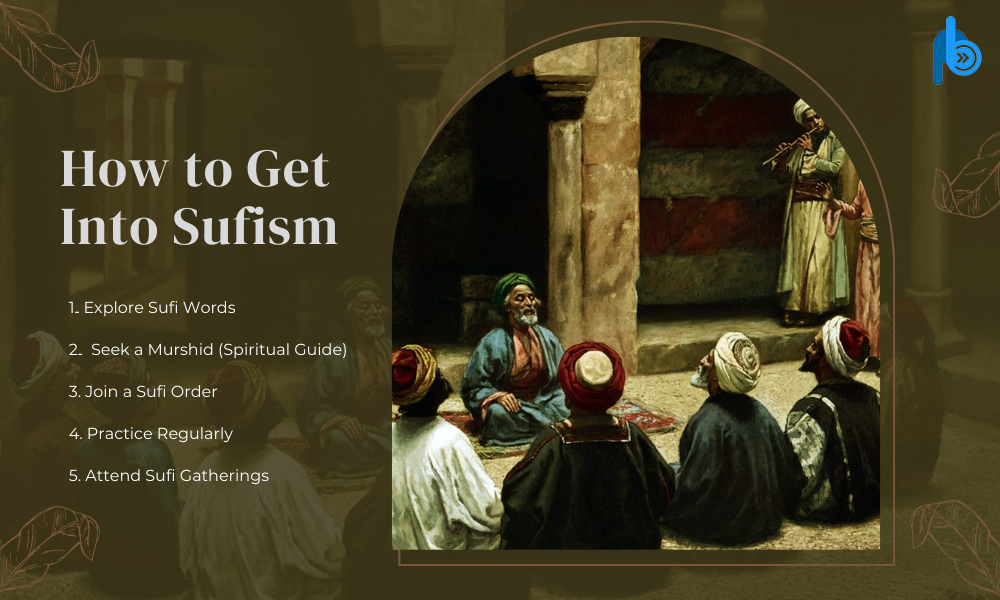
Sufism, usually observed as the soul of Islam, is a pathway that underlines the inward, esoteric qualities of the religion. If you’re seeking to get into Sufism, the trip usually starts with an honest intent to search for nearness to God. Here are some stairs to direct you how to get into Sufism:
- Explore Sufi Words: Initiate by studying the workings of eminent Sufi experts and songsters like Romi, Al-Ghazali, and Ibn Arabi. Their works offer a deep understanding into the Ascetic approach of life and its devotional exercises.
- Seek a Murshid (Spiritual Guide): In Sufism, having a Guide is essential. A Guide assists you across the spiritual road and provides leadership, assistance, and sagacity. Various Mevlevi orders (Tariqas) have developed hubs where you can seek a Sheikh.
- Join a Sufi Order: Mevlevi order, each with its own peculiar exercises and way of life, provides a community of like-minded humans. Associating with an order enables you to take part in collective exercises such as Dhikr (reminiscence of God), Sama (spiritual song), and contemplation.
- Practice Regularly: Involve in steady divine practices like supplication, voluntary fasting, and Dhikr. These habits assist in cleansing the soul and intensifying your love with God.
- Attend Sufi Gatherings: Take part in assemblies at Sufi sanctuaries and midpoints. These assemblies usually include Qawwali music (spiritual music) and Dhikr gatherings, supplying a collective room for spiritual development.
The Basic Tenets and Doctrines of Sufism
Sufism is established on various basic tenets and doctrines that direct its adherents on their spiritual pilgrimage. Primary to Sufi faith is the idea of Divine unity, the totality of God, highlighting that all cosmos originate from and proceed to God. This faith teaches a wisdom of oneness and interconnection amongst all existences.
One more essential tenet is Dhikr or the reminiscence of the Almighty. Ascetics absorb in Dhikr by means of the repeating of Divine epithets and qualities, which aids them reach a state of spiritual enlightenment and intimacy with God. The routine of Dhikr varies amongst Sufi classes, but its core remains constant.
Sufism also set crucial consequences for the function of a Sheikh. The spiritual leader offers devotees the requisite doctrines and routines to proceed in their spiritual way. This mentoring is essential as it serves one to beat the problems and diversions they may face.
How to Control Spirit (Nafs) in Sufism

Spirit (Nafs), usually referred to as egoism or identity, depict the base cravings and tendencies that can divert one distance from the divine teachings. Dominating the Spirit (Nafs) is crucial in Sufism, as it is considered to cleanse the soul and carry one nearer to the Almighty. Here are a few methods Sufis govern their Spirit (Nafs):
- Mujahada (Spiritual Battle): This includes strongly opposing the desires and needs of the Spirit (Nafs). Through self-control, abstinence, and contemplation, Sufis struggle to undermine the bias of the Spirit (Nafs).
- Dhikr (Reminiscence of God): Constantly undertaking in Dhikr aids to hold the brain and soul-centred on God, diminishing the influence of the Spirit (Nafs).
- Tawakkul (Trust in God): By putting absolute faith in the Almighty and embracing His wish, Sufis find out to renounce their narcissistic urges and submit to God.
- Compassion and Service: Helping other people affectionately is an approach to surpass one’s egoism and nurture humbleness and kindness, which are critical in dominating the Spirit (Nafs).
The Role of Qutb in Sufism
In the Sufi order, the Qutb, or the spiritual pole, carries a primary and greatly respected status. The Qutb is reviewed to be the utmost spiritually awakened individual in the cosmos at any specified time and functions as a middleman between the creator and the world of ours. This angelic being is considered to have ardent divine insight and sagacity, directing other Puritans and holding the equilibrium of the inner life.
The concept of Qutb highlights the importance of spiritual leadership and ranking in Sufism. It highlights the trust that certain human beings, with their fervent love and divine discipline, reach a level of illumination that enables them to function as channels of heavenly grace and guidance for other people.
The 4 Stages of Sufism
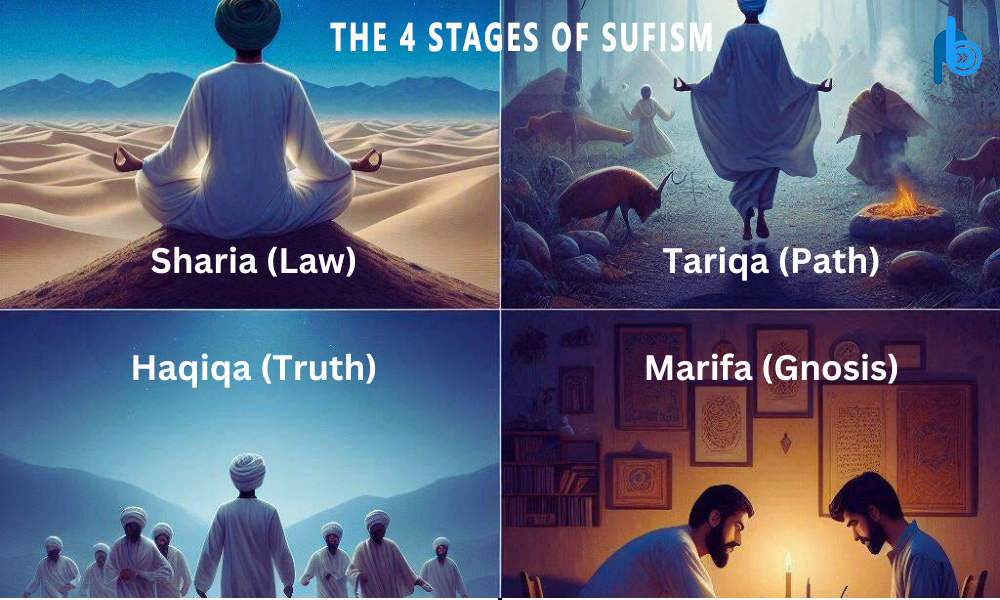
Sufi doctrine usually explains the spiritual pilgrimage as a march across several stations, each symbolising a superior degree of spiritual sense and intimacy to the Lord. The 4 stages of Sufism are:
- Sharia (Law): The first level includes rigid faithfulness to Islamic decree and the essential training of Islam, such as supplication, religious fasting, and charity. This level builds the cornerstone of the spiritual pilgrimage, stressing surface acquiescence with religious obligations.
- Tariqa (Path): In this level, the searcher chases a certain divine path following the instruction of a Sheikh. The pieces of training included in this level, such as Dhikr and contemplation, are intended to cleanse the heart and strengthen the individual’s spiritual enlightenment.
- Haqiqa (Truth): This stage is marked by the searcher obtaining greater divine revelations and understanding the underlying truths of existence. It involves moving beyond the outward forms of glorification to a better esoteric inner consciousness of the Almighty’s presence.
- Marifa (Gnosis): The final level is one of absolute awakening and association with the Almighty. At this stage, the searcher has surpassed the personality and completely understood the unity of all cosmos with the Magnificent, encountering a state of consistent almighty presence.
Sufism in Pakistan
Pakistan has a strong ritual of Sufism, with various venerated Sufi ascetics who have performed a substantial part in expanding Islam and its principles everywhere in the area. The temples of these martyrs, such as Data Ganj Bakhsh in Lahore, Shah Rukn-e-Alam in Multan, and Lal Shahbaz Qalandar in Sehwan, are not only locations of spiritual sense but also hearts of inspirational and collective life. These sanctuaries draw thousands of disciples every year, who search for graces, phantom solace, and counsel.
Sufism in Pakistan is not just a spiritual way but also a cultural demand that allures artistry, singing, and writing. Sufi devotional music, a form of song praising God, is intensely interconnected with Sufi practices and is a famous resource for denoting affection and devotion to the Lord. The subjects of divine love, yearning, and divine unity dominant in Sufi verse and singing reverberate greatly with the divine and emotional lives of multitudinous Pakistanis.
Conclusion
Islamic values and traditions, especially Sufism, are fundamental to Pakistan’s incorporeal and artistic individuality. Dealing with how to get into Sufism, its basic tenets and doctrines, and how to control Spirit (Nafs) provides a glance into the wealthy spiritual inheritance that remains to mold the living of several in Pakistan. The functions of the Qutb and the succession through the 4 stages of Sufism demonstrate the deepness and intricacy of this mystic road.
The lasting presence of Sufism in Pakistan emphasises its importance as a link between the spiritual and day-to-day lifestyle of its humans. Whether using the doctrines of the ascetics , the songs of Islamic music, or the training of self-sterilisation, Sufism remains to excite and direct those searching a wider association with the Divine.
For those curious in researching Sufism more, visiting the various sanctuaries and partaking in Sufi assemblies in Pakistan can provide a deep encounter of this mysterious tradition. Sufism’s focus on love, patience, and spiritual development resounds intensely in the souls of various, producing it a keystone of Pakistan’s wealthy Islamic inheritance.
Relatable Blog from this Author: Introduction to Sufism: Exploring the Heart of Islam
